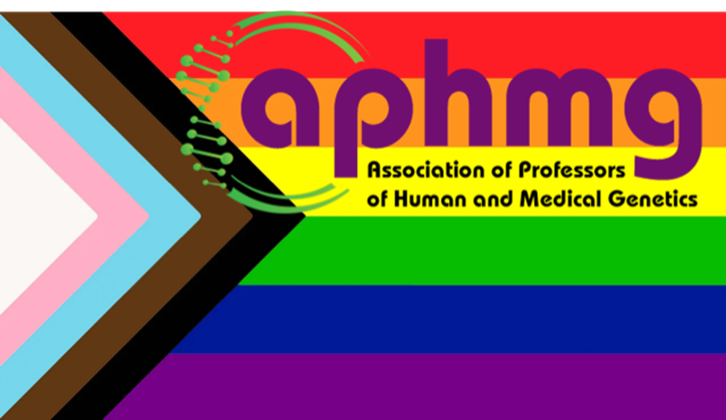Engagement, Outreach, and Belonging Position Statements & Resources
Given the wide use of genetics in many medical and science disciplines, and the inaccurate historical association between race and genetics, it is critical that all clinical trainees and healthcare professionals understand the ways that policies, social and structural inequities (including but not limited to racism, homophobia, transphobia, sexism, and disability bias), communication, and cultural context shape the equitable implementation of genomic medicine for all. It is also imperative to recognize the historical roots of the biased systems in which we work, the ways in which scientists and clinicians practicing genetics contribute(d) to the healthcare disparities that emerged from these systems, and the responsibility we all share to dismantle these systems of oppression through equitable patient care, advocacy, research, and education. A clear understanding of this context along with a solid foundation in genetics and genomics will help to disentangle biological factors from social and cultural factors that contribute to health, disease risk, and outcomes, which will lead to more precise, individualized, and ethical patient care. We provide the position statements and accompanying resources below to help our community of educators to train a more inclusive genetics healthcare workforce and to broadly promote equity and inclusion.
Disability ResourcesAPHMG Statement on Disability Justice (PDF; July 25, 2025) Spanish Translation of Statement Dear Colleagues, Disability is an incredibly broad umbrella, encompassing a range of human differences from the inherent to the acquired, the visible to the invisible, and the physical to the neurological or social-emotional. Importantly, the framing of disability can be centered around deficit or difference. The framework is significant because the lens of deficit uses a medical model to focus on “problems” with a person’s body or mind that should be “fixed,” and this model is one that often appears in clinical settings. The lens of difference, however, uses a social model to understand how one’s disability might influence their ability to navigate physical and virtual spaces. In this context, the goal of accessibility is to ensure the environment is open to people with a range of abilities. That is, with the social model, the thing that needs fixing is the environment, not the person. In fact, the Americans with Disabilities Act, passed in July of 1990, brings this lens to bear when we think about minimum standards for public spaces, allowing people with disabilities to access these environments without further accommodation. Because of this important advance in disability justice, Disability Pride Month is celebrated internationally every July. There are many ways in which geneticists and medical educators can bring awareness to issues of disability justice in service of inclusivity. A few important examples include:
In an era in which social supports for people with disabilities are being drastically cut, it is even more important to ensure our learning environments help to develop providers with awareness of the issues that impact people with disabilities. Here we have compiled a list of resources that can provide some tools to learn and teach about disability, ableism, and inclusive medical education.We hope these resources will help you get started on this critical call to action. As always, we remain committed to working and learning together to promote a more equitable society. Yours in Solidarity, Shoumita Dasgupta, PhD, Chair, Engagement, Outreach, and Belonging With APHMG Executive Officers
Resources:
|
Gender Inclusivity Resources
 APHMG Statement on Gender Inclusivity (PDF; June 29, 2022)
APHMG Statement on Gender Inclusivity (PDF; June 29, 2022)
Spanish Translation of Statement
Resources:
- Association of American Medical Colleges: Implementing Curricular and Institutional Climate Changes to Improve Health Care for Individuals Who Are LGBT, Gender Nonconforming, or Born with DSD
- NSGC Webinar Video: Beyond the Binary: Gender Diversity in Genetic Counseling
- Personal Genetics Education Project: Sex, Gender, and Genetics
- Assessing transgender and gender non-conforming pedigree nomenclature in current genetic counselors' practice: The case for geometric inclusivity
- American Academy of Pediatrics: Ensuring Comprehensive Care and Support for Transgender and Gender Diverse Children and Adolescents
- Practice Resource Focused Revision: Standardized pedigree nomenclature update centered on sex and gender inclusivity: A practice resource of the National Society of Genetic Counselors
Reproductive Health Resources
APHMG Statement on Reproductive Health (PDF, September 8, 2021)
Spanish Translation of Statement
Resources:
- ELSI Friday Forum - Current Legal Challenges to Abortion: Implications for Prenatal Genetics
- Access to Reproductive Options After Prenatal Diagnosis—Patient Access and Physician Responsibilities: An Updated Position Statement of the American College of Medical Genetics and Genomics (2019)
- You’re the Only One I’ve Told: The Stories Behind Abortion by Meera Shah, MD
- Killing the Black Body: Race, Reproduction, and the Meaning of Liberty by Dorothy Roberts, JD
- Project Inclusive Genetics: Clinical Decision-Making in the Prenatal Setting
Racial Equity Resources
APHMG Statement on Racial Equity (PDF, June 9, 2020)
Spanish Translation of Statement
Resources:
- ASHG Denounces Attempts to Link Genetics and Racial Supremacy
- Understanding Race: Human Variation
- Will Precision Medicine Move Us Beyond Race?
- Can Biology Class Reduce Racism?
- Human Genetic Variation: A Flipped Classroom Exercise in Cultural Competency
- Superior: The Return of Race Science by Angela Saini
- Human Genetics Scholars Initiative (applications due June 11)
- National Museum of African American History and Culture: Talking About Race
